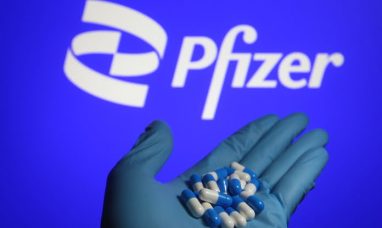Moderna stock (NASDAQ:MRNA) experienced a 9.3% increase on Thursday following positive data from a mid-stage study on its individualized neoantigen therapy (INT) candidate mRNA-4157/V940. The study, conducted in collaboration with Merck & Co. Inc. (MRK), reported median follow-up data of approximately three years.
The phase IIb KEYNOTE-942 study evaluated the combination of mRNA-4157 and Merck’s immuno-oncology drug Keytruda in patients with resected high-risk melanoma (stage III/IV) post-complete resection. At the median planned follow-up of around three years, the combination treatment demonstrated a 49% reduction in the risk of recurrence or death compared to Keytruda alone. Additionally, the combination reduced the risk of developing distant metastasis or death by 62%.
The positive results build on last year’s announcement that the KEYNOTE-942 study achieved its primary endpoint of recurrence-free survival (RFS). Earlier this year, two-year follow-up data revealed that the mRNA-4157/Keytruda combination significantly decreased the risks of recurrence/death by 44% and the risk of distant metastasis or death by 65%.
The encouraging data prompted Moderna and Merck to initiate the pivotal phase III INTerpath-001 study in July, evaluating the mRNA-4157/Keytruda combination as an adjuvant treatment for patients with resected high-risk melanoma. Additionally, the companies recently initiated a second pivotal late-stage study (INTerpath-002) evaluating the mRNA-4157/Keytruda combination in non-small cell lung cancer (NSCLC). Plans involve exploring mRNA-4157 in other oncology indications.
Moderna and Merck’s collaboration dates back to 2016, with a strategic partnership aimed at developing and commercializing mRNA-based therapeutics for various cancer types. Last year, Merck exercised its option to develop the INT with Moderna, and the collaboration involves an equal sharing of costs and profits.
mRNA-4157, unlike traditional therapies, is tailored for each patient based on the unique mutational signature of their tumor, providing individualized treatment to cancer patients. The success of mRNA-based therapeutics, notably demonstrated during the COVID-19 pandemic with mRNA vaccines, has showcased the potential of this approach in generating robust immune responses.
Despite the positive developments, Moderna’s stock has experienced a year-to-date loss of 52.2%, outpacing the industry’s decline of 16.2%
Featured Image: Megapixl









